When it comes to nurturing luscious locks, the journey begins at the root - specifically, the scalp. A healthy scalp is the bedrock of vibrant, strong hair, yet it's often overlooked in standard hair care routines. In this comprehensive guide, we delve into the essentials of scalp wellness, offering insights and practical tips to help you cultivate a flourishing environment for your hair.
Nurturing Your Scalp Naturally
A crucial step in achieving natural hair vigor and complementing your Natural Hair Extensions is the care of your scalp. Like a garden, your hair requires a healthy soil (scalp) to grow. Nutrient-rich diets play a pivotal role in maintaining scalp health. Foods high in omega-3 fatty acids, like salmon and avocados, and those rich in vitamins A and C, such as sweet potatoes and oranges, fortify the scalp with the essential nutrients for hair growth and strength, ensuring that your Natural Hair Extensions blend seamlessly with your natural hair.
Hydration and Scalp Health
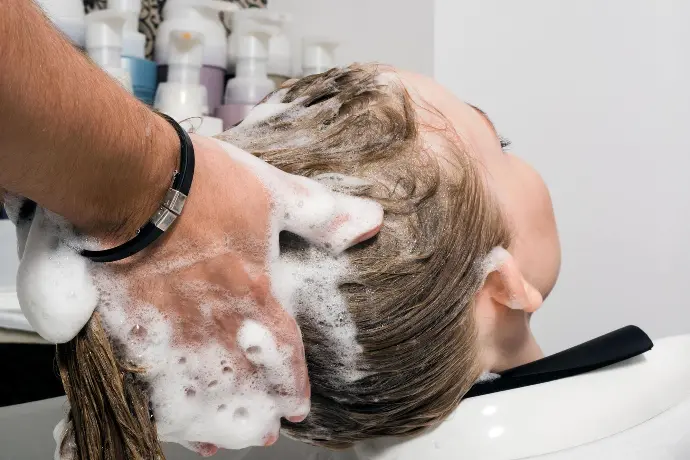
H2O: Your Scalp’s Best Friend
Hydration, fundamentally, refers to the body's overall water content. Adequate hydration is essential for the health and functioning of every cell, tissue, and organ in the body, and this includes the scalp and hair. Here's a breakdown of why hydration is so crucial:
Cellular Health of the Scalp: The scalp consists of skin cells that require water to function properly. When you're well-hydrated, your scalp cells are at their optimal health, which helps in maintaining the integrity and health of the scalp.
Sebum Production: The scalp contains sebaceous glands that produce sebum, a natural oil that conditions and protects the hair. Proper hydration influences these glands to produce sebum at a healthy rate. This natural oil not only nourishes the hair but also imparts a natural sheen, making the hair look vibrant and healthy.
Preventing Dryness and Irritation: A dehydrated scalp can become dry and irritated, leading to issues like itchiness, dandruff, and increased sensitivity. Consistent hydration helps in maintaining the scalp's moisture balance, preventing these common scalp problems.
Hair Strength and Elasticity: Hydrated hair is more elastic and less prone to breakage. When the hair shaft is adequately moisturized, it maintains its strength and flexibility, reducing the likelihood of damage and split ends.
Promoting Hair Growth: A well-hydrated scalp provides a healthier environment for hair growth. When the scalp is healthy, hair follicles are more likely to produce strong, healthy hair strands.
It's important to note that hydration doesn't just come from drinking water. It also comes from consuming fruits and vegetables with high water content, as well as from using hair care products formulated to hydrate and nourish the scalp and hair.
Identifying and Addressing Scalp Conditions
Recognizing the Signs of Scalp Distress
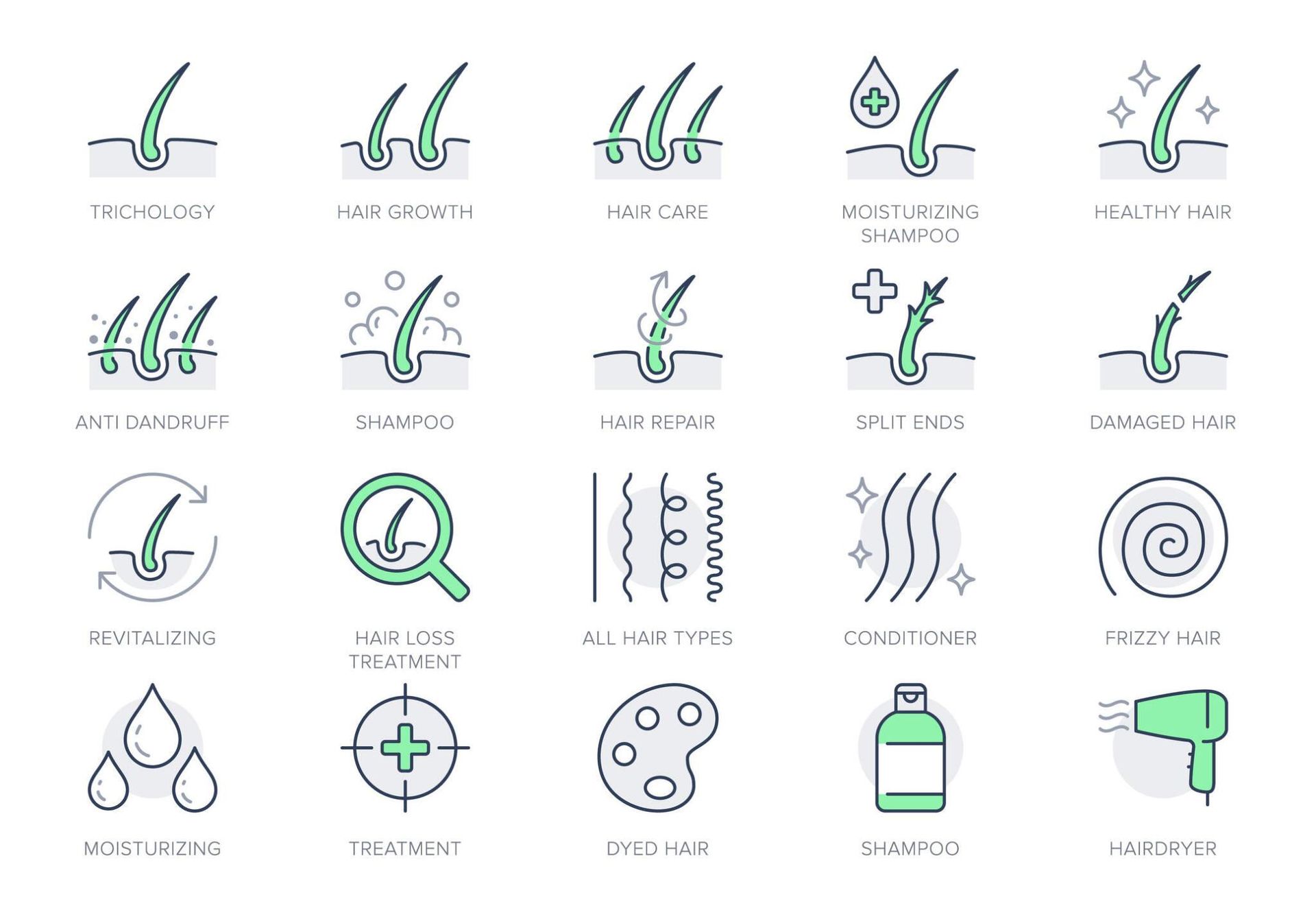
Common scalp conditions like dandruff, psoriasis, and seborrheic dermatitis can hinder hair health. Recognizing symptoms such as flakiness, redness, and itchiness is critical. Consulting with a dermatologist can provide you with a tailored treatment plan. Gentle, soothing shampoos and products containing tea tree oil or zinc pyrithione can be beneficial.
Dandruff
What It Is: Dandruff is a common scalp condition characterized by flaking and mild itchiness. It's often caused by an overgrowth of a yeast-like fungus called Malassezia, which is naturally present on the scalp.
Symptoms: The primary symptoms include white, oily flakes of dead skin in the hair and on the shoulders, as well as an itchy scalp.
Treatment: Regular use of anti-dandruff shampoos containing active ingredients such as zinc pyrithione, selenium sulfide, or ketoconazole can be effective. These ingredients work by reducing the amount of fungus and thus the amount of flaky skin.
Psoriasis
What It Is: Scalp psoriasis is a skin disorder that causes red, raised, scaly patches on the scalp. It can be isolated to the scalp or part of a broader psoriatic condition affecting other parts of the body.
Symptoms: Scalp psoriasis can be itchy and sometimes painful. The scales are typically silvery white and can extend beyond the hairline.
Treatment: Treatment includes medicated shampoos and topical treatments containing coal tar or salicylic acid, which help to reduce scaling. More severe cases may require prescription-strength treatments or light therapy.
Seborrheic Dermatitis
What It Is: This is a more severe form of dandruff, characterized by red, greasy skin covered with flaky white or yellow scales. It's believed to be caused by a combination of an overproduction of skin oil and irritation from the yeast Malassezia.
Symptoms: Symptoms include red, greasy skin covered with flaky scales, along with itching and possibly burning. It's not just limited to the scalp and can appear on other oil-rich areas of the body.
Treatment: Treatment often involves medicated shampoos containing pyrithione zinc, ketoconazole, or selenium sulfide. In more severe cases, a dermatologist may prescribe antifungal medications or topical corticosteroids.
In all these conditions, recognizing and responding to symptoms early can prevent worsening of the condition and potential hair damage. It's important to note that while over-the-counter products can be effective, persistent or severe cases should be evaluated by a dermatologist for a more tailored treatment plan. The health care professional can suggest a combination of topical treatments, prescription medications, and even lifestyle changes to manage these conditions effectively.
Additionally, while using therapeutic shampoos and products, it's beneficial to be gentle during application. Vigorous scrubbing can irritate the scalp further. Letting the shampoo sit on the scalp for a couple of minutes before rinsing can also increase its effectiveness.
Lastly, natural remedies like tea tree oil, known for its antifungal and antibacterial properties, can be helpful in managing mild symptoms. However, it's essential to use these in conjunction with or after consulting with a healthcare professional, especially in cases of severe symptoms or persistent conditions.
Routine Scalp Care
Cultivating a Healthy Scalp Environment
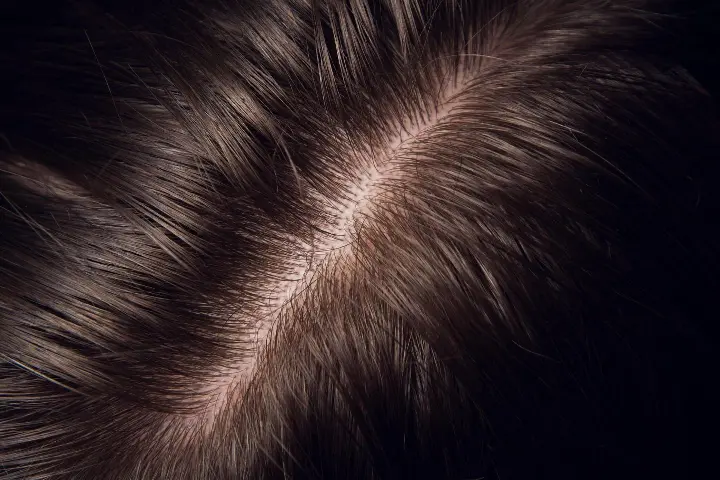
Maintaining a balanced scalp care routine is pivotal for optimal hair health. The frequency of hair washing is a critical aspect of this balance. Over-washing your hair can strip the scalp of its natural oils, which are essential for keeping both the scalp and hair nourished and protected. On the flip side, washing your hair too infrequently can lead to the accumulation of products, dead skin cells, and natural oils, which can clog hair follicles and hinder healthy hair growth. Thus, finding a middle ground that suits your hair type and scalp condition is crucial. This balance is not just about how often you wash your hair, but also about how you wash it. For instance, using lukewarm water instead of hot can make a significant difference. Hot water can be harsh on the scalp, leading to dryness and irritation, while lukewarm water is gentle and helps preserve the scalp's natural moisture balance. This approach to hair washing, when combined with the right frequency, ensures that the scalp remains healthy, fostering an ideal environment for hair growth and vitality.
Gentle Scalp Massage
The Magic of Massage
Incorporating a gentle scalp massage into your daily hair care routine can significantly enhance scalp circulation, leading to healthier and more vigorous hair growth. This simple yet effective practice can be seamlessly integrated into your routine during shampooing or when applying nourishing oil treatments. By gently massaging the scalp with your fingertips in a circular motion, you encourage increased blood flow to the hair follicles, delivering more oxygen and nutrients which are essential for healthy hair development. This not only revitalizes the scalp but also helps in stress reduction, contributing to overall scalp health. To further augment the benefits of a scalp massage, consider incorporating essential oils like lavender or peppermint. These oils, when properly diluted, can add therapeutic properties to your massage. Lavender oil is renowned for its soothing and anti-inflammatory effects, which can alleviate scalp irritation, while peppermint oil is known for its invigorating qualities, potentially stimulating hair growth by awakening dormant hair follicles. This holistic approach, combining mechanical stimulation with the therapeutic qualities of essential oils, offers a dual benefit of enhancing hair health while also providing a relaxing, sensory experience.
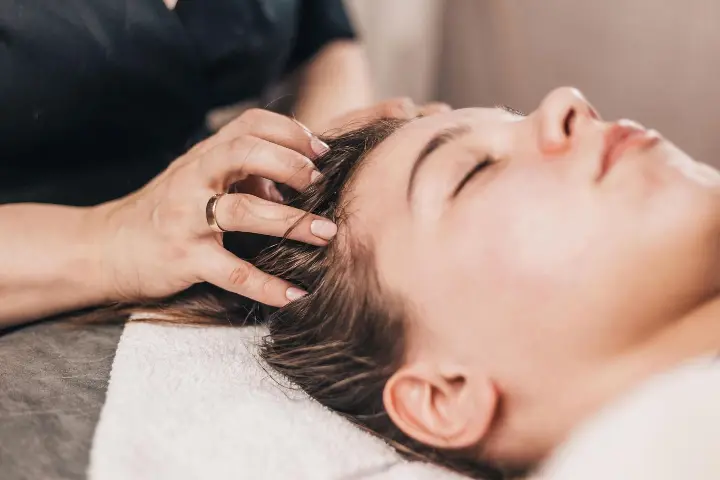
Avoiding Harsh Treatments
Protecting Your Scalp from Aggressive Styling
Minimizing the use of harsh chemical treatments, such as hair dyes, relaxers, and perms, along with reducing the frequent use of heat styling tools like straighteners, curling irons, and blow dryers, is crucial for maintaining scalp and hair health. These practices can cause significant damage to the hair shaft and follicles, often resulting in dryness, breakage, and scalp irritation. Over time, the cumulative effect of these treatments can weaken hair strands and impede healthy hair growth. By opting for natural hairstyles and gentler styling techniques, you not only give your hair a much-needed break from constant stress but also preserve the natural integrity and moisture of your hair and scalp. Embracing your hair's natural texture and minimizing chemical and heat exposure can play a significant role in maintaining its vitality and strength, leading to a healthier, more vibrant mane. For those looking to add length or volume while maintaining hair health, Kinky Curly Hair Extensions are a fantastic option. This approach to hair care not only benefits the physical condition of your hair but also encourages a healthier, more sustainable relationship with beauty and styling practices.
Stress Management and Scalp Health
Stress: A Silent Culprit
Stress is a significant factor that can adversely affect scalp health, often manifesting in symptoms like hair thinning or loss. When the body experiences stress, it releases a flood of hormones, including cortisol, which can disrupt the natural growth cycle of hair follicles, leading to weakened hair and increased shedding. This reaction is part of the body's natural fight-or-flight response, but when stress is chronic, it can cause prolonged hair thinning and loss. To combat these effects, integrating stress-reduction activities into daily life can be incredibly beneficial. Practices like yoga and meditation are known for their calming effects on the mind and body, helping to lower cortisol levels and restore hormonal balance. Regular physical exercise not only reduces stress but also improves blood circulation, including to the scalp, which is vital for nourishing hair follicles and promoting healthy hair growth. By dedicating time to these activities, individuals can create a more balanced, stress-free environment for their bodies, encouraging healthier scalp conditions and, consequently, healthier hair.
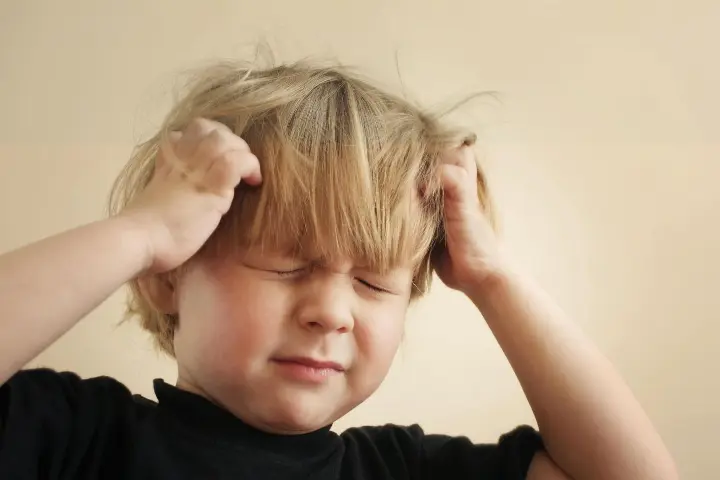
Conclusion
Maintaining scalp health is a journey that involves a holistic approach, encompassing nutrition, hydration, routine care, and stress management. By nurturing your scalp with the right practices and treatments, you pave the way for stronger, healthier hair. Embrace these tips as part of your daily regimen and witness the transformation in your hair's health and vitality.
Remember: A flourishing scalp is the foundation of beautiful, natural hair. Treat it with care, and your locks will thank you.